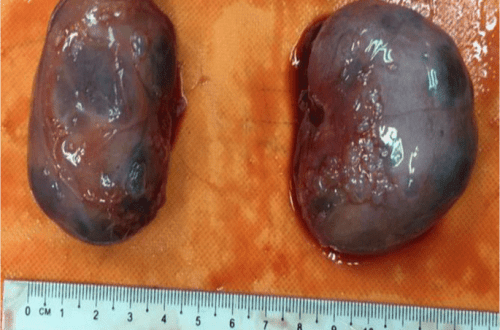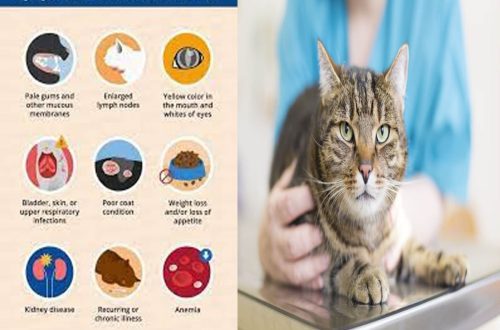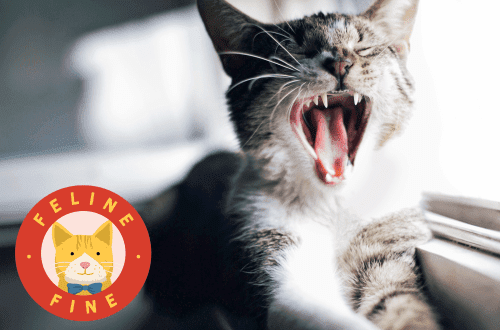
Poisoning in cats: symptoms and what should the owner do?

Contents
Poisoning in cats: the main thing
The main rule is that if the animal is poisoned, never try to treat it yourself. This can aggravate the condition of the pet, and precious time will be lost.
Do not make the cat vomit or force water to drink. With a greater degree of probability, this will only worsen the well-being of the animal.
The earlier the better. The chance for successful treatment, stabilization of the condition and the disappearance of all symptoms of poisoning is higher if the cat is promptly seen by a doctor in a veterinary clinic.
Symptoms of poisoning are nonspecific and can be confused with other diseases.
First aid for a cat in case of poisoning includes stopping the effects of poison on the body and immediately contacting a veterinary clinic.
How and how to treat a kitten or adult animals in case of poisoning is decided by a veterinarian.
Prevention is the key to your pet’s health. Do not teach a cat to eat from the table, keep all medications, plants, various chemicals out of reach of her.

Causes of poisoning
There are a lot of causes that cause poisoning, and in this article we will not be able to cover their entire list. Let’s focus on the most common ones.
Plants
A common misconception among owners is that plants contain beneficial substances for pets. This is not true. Unfortunately, many of them are quite toxic to pets. Here are some of them: lilies, tulips, daffodils, chrysanthemums, hyacinths, aloe.
Sometimes eating plants leads to lesions of the gastrointestinal tract of varying severity, and more deplorable consequences are possible. So, lilies, even in small quantities, are poisonous. Ingestion of any part of the plant, down to pollen, causes severe kidney failure and death of the animal.

Medications
Some human and even veterinary medicines are dangerous and can lead to serious organ failure and even death. A specific type of drug taken in any amount, as well as an overdose of drugs, can have a toxic effect.
Non-steroidal anti-inflammatory drugs (NSAIDs). Among them, drugs with active ingredients such as ibuprofen and paracetamol (trade names – Nurofen, Panadol) are especially dangerous. A small amount of this medicine can lead to damage to the mucous membrane of the stomach and intestines, to peptic ulcer. In case of severe overdose, renal failure and even death of the animal occur.
In the process of choosing a veterinary drug from the NSAID group, you should carefully read the instructions, as well as know the exact weight of the pet to calculate the dosage.
pyrethrins and pyrethroids. These substances are a component of some veterinary preparations for fleas and ticks for dogs (for example, Advantix, Celandine). They are extremely toxic even in small amounts, so it is extremely important to avoid the use of these agents in this animal species! Pyrethrins and pyrethroids are neurotoxins (poisons that specifically act on nerve cells), so if a pet is poisoned by them, symptoms will include trembling, loss or confusion of consciousness, and impaired coordination. Often the result is a fatal outcome. If a dog still lives in the house, then when treating it from fleas with these drugs, it is necessary to protect other pets from contact with it for 48-72 hours. Do not allow the substance to enter the mouth of any animal. This will reduce the risk of poisoning. There are safe alternatives to antiparasitic drugs that do not use pyrethrins and pyrethroids.

Food products
Pets often like to beg for food from the owner, often trying to steal something edible from the table or from the trash can. The consequences of such habits can be bleak, as some human foods are toxic and can lead to food poisoning in a cat.
These foods include: onions and garlic, foods containing caffeine and theobromine (coffee, dark and white chocolate, cocoa beans), grapes, raisins, salt, macadamia nuts, chewing gum (it contains the dangerous sweetener xylitol), avocados , alcohol, raw yeast dough, etc. The thing is that the body of a pet does not have some enzymes that could digest and neutralize food familiar to people. Or, as in the case of onions and garlic, the toxic effect is reduced to the destruction of red blood cells (erythrocytes), which can lead to the death of the animal in a severe course of the process.
Special attention should be paid to alcohol, which is also a serious poison for animals. Unfortunately, until now, in the practice of a veterinarian, there are owners who are trying to treat their pets for various diseases with folk remedies – with the help of alcohol. Under no circumstances should this be done!

Chemical substances
This is a fairly large group of toxic substances that can enter the body of an animal in a variety of ways.
For example, ethylene glycol, which is found in car antifreeze, and paint thinners containing toluene and acetone, if ingested, cause kidney failure, gastrointestinal upset, breathing problems, or chemical burns. Cases of such poisoning rarely end in the complete recovery of the animal, and deaths are frequent.
Zoocumarins – substances designed to fight mice and rats, the so-called “rat poison” – can be attractive in taste and smell, including for other animals. When a pet is poisoned by these drugs, this is mainly manifested by a violation of blood clotting and internal bleeding, kidney damage, convulsions and, as a result, death.
Household cleaners (bleach, detergents and disinfectants) can cause gastrointestinal and respiratory problems if swallowed.
Fertilizers have a rather diverse composition: they contain compounds of nitrogen, phosphorus, potassium, as well as additives such as herbicides, insecticides and fungicides. All of these components are dangerous to one degree or another. In case of poisoning with them, there may be: irritation of the gastrointestinal tract, neurological disorders, a negative effect on the cardiovascular system.

Essential oils
Most essential oils are toxic to pets. These include the following: citrus, clove, eucalyptus, lavender, peppermint oil, cinnamon, etc. The degree of toxicity varies greatly. Essential oils can be poisoned by both ingestion and inhalation. Never apply them to the fur or skin of an animal! Also avoid using essential oil based flea treatments.

Signs of Poisoning in Cats
Symptoms of poisoning in cats can vary greatly depending on the toxin and how they were exposed. Some poisons have an almost instantaneous effect, while others may take several days to react. Listed below are the most common symptoms when a cat has been poisoned. But keep in mind that this is not an exhaustive list, and some of them may indicate other health problems.
Early signs of poisoning in cats include:
diarrhea;
vomiting;
salivation;
depression or vice versa restless behavior;
lack of coordination;
painful stomach;
reduced appetite.
They can then progress to rapid breathing or shortness of breath, high or low temperature, seizures, jaundice of the skin and visible mucous membranes. In the worst case, poisoning in a cat can quickly lead to her death.
Unfortunately, most toxins are difficult to detect using laboratory or instrumental diagnostics. Nevertheless, it is still carried out to monitor the general condition of the animal.
The diagnosis is made on the basis of an anamnesis (a medical history compiled from the words of the owner), symptoms, and a clinical examination. The veterinarian may need clinical and biochemical blood tests, electrolytes, urinalysis.
From instrumental diagnostics, an x-ray of the abdominal cavity, ultrasound examination of internal organs, and gastroscopy are used.

Treatment
How and how to treat poisoning in a cat should be decided by a veterinarian, since it depends on the type of poison, toxin. The more information the owner provides to the veterinarian, the better and faster the pet will be helped.
First aid at home
If your cat is poisoned, you can do the following at home:
Stop ongoing exposure to poison.
Do not offer water, as this may inadvertently cause the poison to enter the body more quickly.
It is not recommended to induce vomiting in a pet on your own, as this can do more harm than good.
If there is a suspicion that the cat may have consumed a toxic substance or shows signs of poisoning, immediately contact a veterinary clinic. When the cause is known, take the container, label, or sample of the substance with you. A sample of the animal’s vomiting or diarrhea may also be helpful.
You can find a lot of advice on the Internet about what to give a cat with poisoning, including home remedies for poisoning. They should never be given to a pet. We strongly advise you to always follow the instructions of your veterinarian.

Veterinary help
If the cat has symptoms of poisoning, in most cases hospitalization to a veterinary clinic for treatment and monitoring of the general condition is required.
If it is known which poison affects the animal’s body, then the veterinarian can apply an antidote (antidote). If the type is unknown, treatment will be symptomatic and aimed at maintaining normal function of the vital organs until the toxin is cleared from the body.
Ways to treat poisoning in a pet:
Stimulation of vomiting – is not used in all cases and only if not much time has passed from the moment of the incident.
Sorbents – for adsorption (absorption) of toxins, activated charcoal can be given to the animal if a significant amount of time has passed since ingestion. Often sorbents are used in tandem with laxatives to remove poison from the body. Your doctor may also prescribe gastric lavage.
supportive therapy. Depending on the condition, intravenous infusions (droppers) can be used to correct dehydration, stabilize the water and electrolyte balance, and reduce intoxication in the cat. Medications that relieve symptoms (painkillers, antiemetics, antipyretics) are also used.
It is important to note that the approach to the treatment of various types of poisoning includes different combinations of drugs and depends on the time of contacting the veterinary clinic.

Animal care after poisoning
Recovery will largely depend on what substance the cat was poisoned with, how much it entered the body, and how quickly veterinary care was provided. Outcomes in cats treated early are much better than in animals that have a long delay in starting treatment.
After stabilization of the pet’s condition, they will be discharged from the clinic home. It may be necessary to continue taking certain medications, as well as repeat visits to the veterinarian to monitor the condition.
The animal must be provided with peace, access to fresh water and properly selected food. It is necessary to monitor the general condition of the pet and, if it worsens, immediately contact the veterinary clinic.
Diet
In some cases, after poisoning, the cat is fed special food to maintain a stable condition. So, for example, in case of damage to the kidneys or the gastrointestinal tract, the veterinarian can prescribe an appropriate diet. Many manufacturers have such medicated feeds, and it will not be difficult to find them in pet stores.
If the pet is not accustomed to veterinary food (dry and wet), then it is necessary to draw up the correct diet from a veterinary nutritionist.

poisoning in kittens
In kittens, poisoning can be caused by all of the above reasons, as in adult pets. The most common symptoms of poisoning in a kitten are the same as in older kittens: vomiting, diarrhea, depression or restless behavior, decreased appetite. But due to the imperfection of the mechanisms of detoxification (removal of poisons from the body) in a young animal, the development of the disease can proceed faster, and death will be observed in most cases.
In case of poisoning, you should not give the kitten water and medications without consulting a veterinarian.
Prevention
It is necessary to store all medicines, various chemicals and cleaning products in cabinets inaccessible to the cat so that it does not get poisoned by them.
It is necessary to strictly follow the instructions of the remedy for fleas and ticks and never use drugs intended for dogs for cats. If you treat pets with insecticides (flea products) that are dangerous to cats, isolate them from each other. When using veterinary drugs, you must carefully study the instructions so as not to cause an overdose in the pet.
When buying plants for your home, choose ones that are safe for cats. In any case, they must be located in an area inaccessible to animals. You also need to collect fallen leaves and petals.
Do not train cats to eat from the table. Garbage bins are best kept out of their reach.
Answers to frequently asked questions about poisoning
January 28 2022
Updated: January 28, 2022





